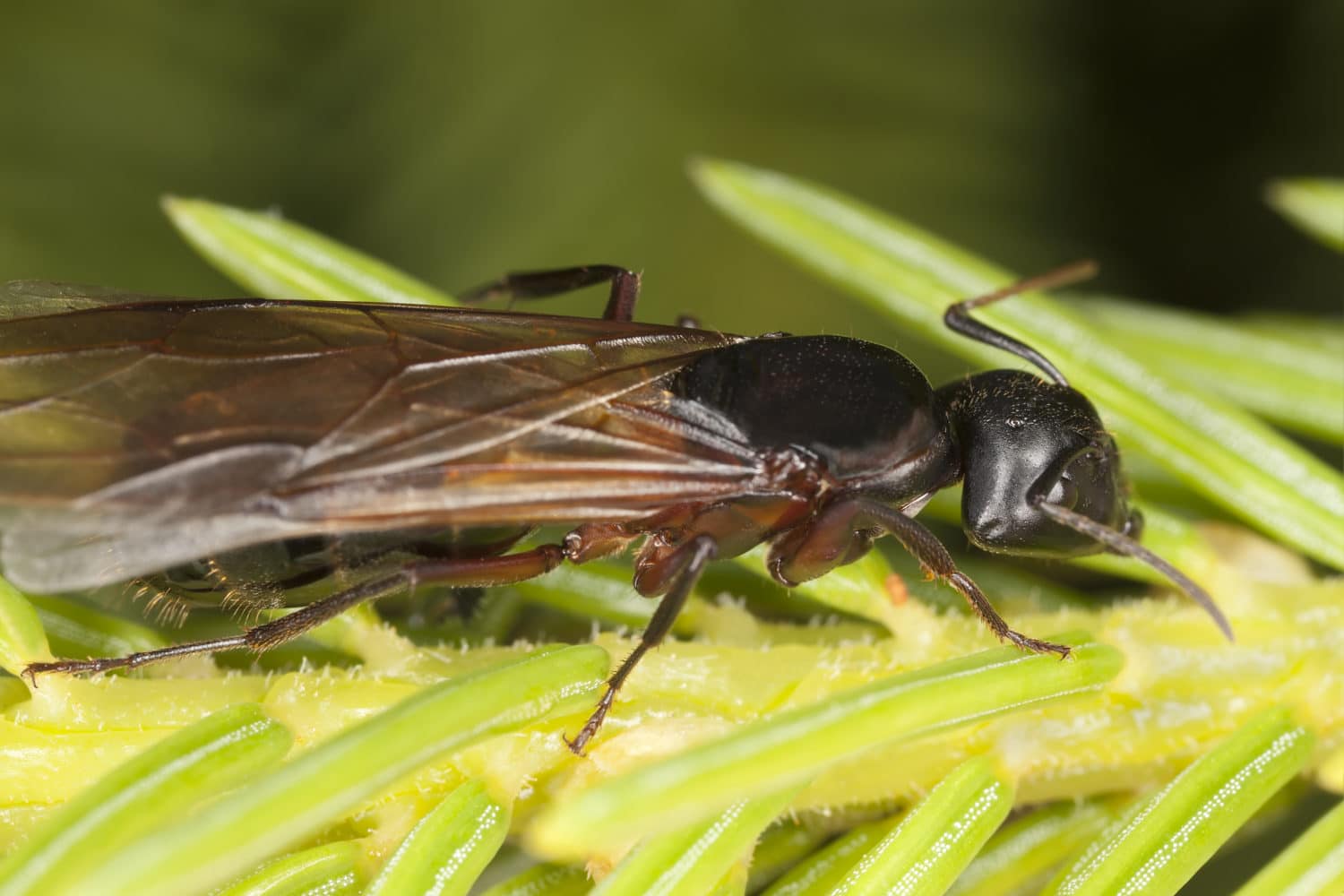Swarms of winged ants flying around inside and outside of your home are not a fun way to kick off warmer weather. You want them gone, and Modern Pest can help. But what are they, and what damage are they doing to your house?

Most likely, they are carpenter ants. In New England, black carpenter ants are most prevalent. There are a few key ways to know if you have them:
- The presence of black ants between ¼” and ¾ inches in length
- Small piles of course sawdust, often mixed with ant and other insect parts
- Swarms of winged ants in late spring and early summer
- Signs of ants near water leaks in your home
Think you have carpenter ants? Don’t wait for them to do more damage to your home. Call Modern Pest for a free quote or to schedule service today! 1-800-323-7378
What is Nuptial Flight?
Did you know that carpenter ants mate while flying? It’s called nuptial flight, and ants, termites, and some bees reproduce this way.
- Winged carpenter ants are part of a reproductive generation of carpenter ants. “Flying Ant Day” is the informal term for when this takes place, although it’s not limited to one day.
- When the weather conditions are right and it’s not raining, many ant colonies will participate simultaneously. This limits predator-interference and encourages cross-breeding between colonies.
- The good timing is due to a perfect combination of temperature, humidity, wind speed, and time of year.
- During nuptial flight, some virgin queen ants will fly very long distances, and others only a matter of feet. Small male ants will fly alongside the queens.
- The queen ant will often try to evade the males and make them chase her. This makes it more likely that the queen will draw the fittest and fastest males.
- Mating takes place during flight. The queen usually mates with several males, and their sperm is stored in the queen’s abdomen and lasts throughout her lifetime. This can be as long as 20 years, and can fertilize tens of millions of eggs.
Establishing a Home
After nuptial flight, the male ants have served their purpose and quickly die. The queen lands and bites her wings off. She begins to seek a good location for her new nest, preferably one in moist or decaying wood. She will chew through the wood and excavate a small gallery where she’ll lay her first round of 15-20 eggs. The queen cares for these infertile female worker ants until she has more offspring. At this point, the workers take care of the new ants. Their job also includes:
- protecting and caring for the queen
- excavating new galleries in the nest to accommodate the growing colony
- gathering food
The queen’s only role in the new colony becomes continuous egg-laying. It usually takes about two to five years for a large colony to develop. After a few years, winged males and females are produced, and nuptial flight occurs again.
The Damage They Do

So what kind of damage are carpenter ants doing to your home once they’ve built their nest?
- Colonies are first established in pre-existing cavities, usually in compromised or rotten wood
- They expand into both rotting and undamaged adjacent wood
- An established carpenter ant colony can weaken a house’s structural foundation by hollowing out lumber, window frames, and sill wood
- Some insurance companies claim that carpenter ants do more structural damage each year than natural disasters (carpenter ant damage is not typically covered by home owner’s insurance)
The Modern Solution
At Modern Pest Services, our number one priority is keeping your family safe and your home pest free. That’s why we created our Homecare Green program. This year-round pest control solution includes a thorough inspection, seasonal visits, carefully targeted treatments, exclusion techniques, and preventative measures. Our Homecare Green program covers 60 pests, including carpenter ants. It also includes unlimited return visits for active pest issues, and Modern’s 100% satisfaction guarantee for your peace of mind.
For more information on Modern Pest’s Homecare Green Program, visit our website today.
